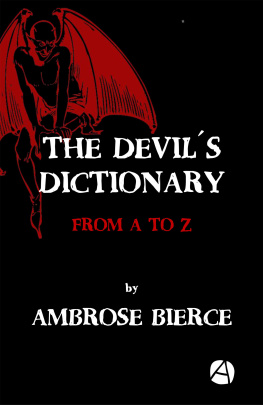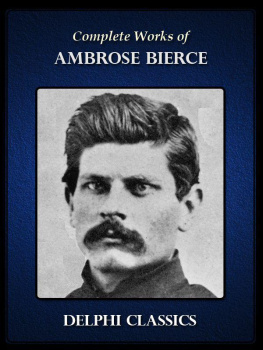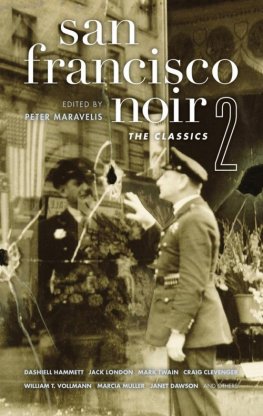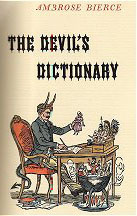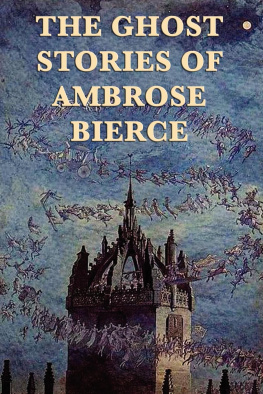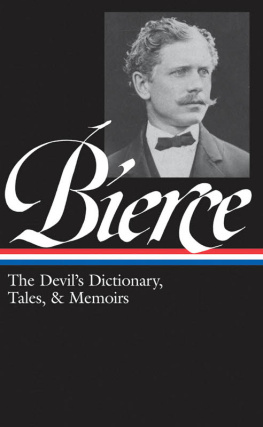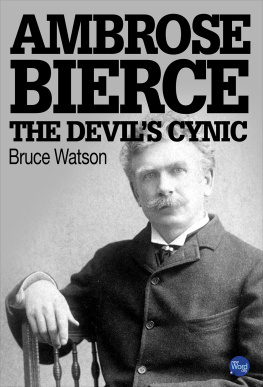Ambrose Bierce - A Son of the Gods and A Horseman in the Sky
Here you can read online Ambrose Bierce - A Son of the Gods and A Horseman in the Sky full text of the book (entire story) in english for free. Download pdf and epub, get meaning, cover and reviews about this ebook. genre: Prose. Description of the work, (preface) as well as reviews are available. Best literature library LitArk.com created for fans of good reading and offers a wide selection of genres:
Romance novel
Science fiction
Adventure
Detective
Science
History
Home and family
Prose
Art
Politics
Computer
Non-fiction
Religion
Business
Children
Humor
Choose a favorite category and find really read worthwhile books. Enjoy immersion in the world of imagination, feel the emotions of the characters or learn something new for yourself, make an fascinating discovery.

- Book:A Son of the Gods and A Horseman in the Sky
- Author:
- Genre:
- Rating:3 / 5
- Favourites:Add to favourites
- Your mark:
- 60
- 1
- 2
- 3
- 4
- 5
A Son of the Gods and A Horseman in the Sky: summary, description and annotation
We offer to read an annotation, description, summary or preface (depends on what the author of the book "A Son of the Gods and A Horseman in the Sky" wrote himself). If you haven't found the necessary information about the book — write in the comments, we will try to find it.
A Son of the Gods and A Horseman in the Sky — read online for free the complete book (whole text) full work
Below is the text of the book, divided by pages. System saving the place of the last page read, allows you to conveniently read the book "A Son of the Gods and A Horseman in the Sky" online for free, without having to search again every time where you left off. Put a bookmark, and you can go to the page where you finished reading at any time.
Font size:
Interval:
Bookmark:
A SON OF THE GODS
and
A HORSEMAN IN THE SKY
By Ambrose Bierce
Including an Introduction by W. C. Morrow
The Introduction
Brilliant and magnetic as are these two studies by Ambrose Bierce, and especially significant as coming from one who was a boy soldier in the Civil War, they merely reflect one side of his original and many-faceted genius. Poet, critic, satirist, fun-maker, incomparable writer of fables and masterly prose sketches, a seer of startling insight, a reasoner mercilessly logical, with the delicate wit and keenness of an Irving or an Addison, the dramatic quality of a Hugo,all of these, and still in the prime of his powers; yet so restricted has been his output and so little exploited that only the judicious few have been impressed.
Although an American, he formed his bent years ago in London, where he was associated with the younger Hood on Fun. There he laid the foundation for that reputation which he today enjoys: the distinction of being the last of the scholarly satirists. With that training he came to San Francisco, where, in an environment equally as genial, his talent grew and mellowed through the years. Then he was summoned to New York to assist a newspaper fight against a great railroad, since the conclusion of which brilliant campaign eastern journalism and magazine work have claimed his attention.
Two volumes, "The Fiend's Delight" and "Cobwebs from an Empty Skull" titles that would damn modern bookswere collections published years ago from his work on London Fun. Their appearance made him at once the chief wit and humorist of England, and, combined with his satirical work on Fun, led to his engagement by friends of the exiled Eugnie to conduct a periodical against her enemies, who purposed to make her refuge in England untenable by means of newspaper attacks. It is easy to imagine the zest with which the chivalrous Bierce plunged into preparations for the fight. But the struggle never came; it was sufficient to learn that Bierce would be the Richmond; the attack upon the stricken ex-empress was abandoned.
When he was urged in San Francisco, years afterward, to write more of the inimitable things that filled those two volumes, he said that it was only fun, a boy's work. Only fun! There has never been such delicious fun since the beginning of literature, and there is nothing better than fun. Yet it held his own peculiar quality, which is not that of American fun,quality of a brilliant intellectuality: the keenness of a rapier, a teasing subtlety, a contempt for pharisaism and squeamishness, and above all a fine philosophy. While he has never lost his sense of the whimsical, the grotesque, the unusual, heunfortunately, perhapscame oftener to give it the form of pure wit rather than of cajoling humor. Few Americans know him as a humorist, because his humor is not built on the broad, rough lines that are typically American. It belongs to an older civilization, yet it is jollier than the English and bolder than the French.
At all times his incomparable wit and satire has appealed rather to the cultured, and even the emotional quality of his fiction is frequently so profound and unusual as to be fully enjoyed only by the intellectually untrammelled. His writing was never for those who could only read and feel, not think.
Another factor against his wider acceptance has been the infrequency and fragmentary character of his work, particularly his satire. No sustained fort in that field has come from him. His satire was born largely of a transient stimulus, and was evanescent. Even his short stories are, generally, but blinding flashes of a moment in a life. He laughingly ascribes the meagerness of his output to indolence; but there may be a deeper reason, of which he is unconscious. What is more dampening than a seeming lack of appreciation? "Tales of Soldiers and Civilians" had a disheartening search for an established publisher, and finally was brought out by an admiring merchant of San Francisco. It attracted so much critical attention that its re-publication was soon undertaken by a regular house.
Had Bierce never produced anything but these prose tales, his right to a place high in American letters would nevertheless be secure, and of all his work, serious or otherwise, here is his greatest claim to popular and permanent recognition. No stories for which the Civil War has furnished such dramatic setting surpass these masterpieces of short fiction, either in power of description, subtlety of touch or literary finish. It is deeply to be regretted that he has not given us more such prose.
W. C. Morrow.
A SON OF THE GODS
A breezy day and a sunny landscape. An open country to right and left and forward; behind, a wood. In the edge of this wood, facing the open but not venturing into it, long lines of troops halted. The wood is alive with them, and full of confused noises: the occasional rattle of wheels as a battery of artillery goes into position to cover the advance; the hum and murmur of the soldiers talking; a sound of innumerable feet in the dry leaves that strew the interspaces among the trees; hoarse commands of officers. Detached groups of horsemen are well in frontnot altogether exposedmany of them intently regarding the crest of a hill a mile away in the direction of the interrupted advance. For this powerful army, moving in battle order through a forest, has met with a formidable obstaclethe open country. The crest of that gentle hill a mile away has a sinister look; it says, Beware! Along it runs a stone wall extending to left and right a great distance. Behind the wall is a hedge; behind the hedge are seen the tops of trees in rather straggling order. Among the treeswhat? It is necessary to know.
Yesterday, and for many days and nights previously, we were fighting somewhere; always there was cannonading, with occasional keen rattlings of musketry, mingled with cheers, our own or the enemy's, we seldom knew, attesting some temporary advantage. This morning at daybreak the enemy was gone. We have moved forward across his earthworks, across which we have so often vainly attempted to move before, through the debris of his abandoned camps, among the graves of his fallen, into the woods beyond.
How curiously we regarded everything! How odd it all seemed! Nothing appeared quite familiar; the most commonplace objectsan old saddle, a splintered wheel, a forgotten canteen everything related something of the mysterious personality of those strange men who had been killing us. The soldier never becomes wholly familiar with the conception of his foes as men like himself; he cannot divest himself of the feeling that they are another order of beings, differently conditioned, in an environment not altogether of the earth. The smallest vestiges of them rivet his attention and engage his interest. He thinks of them as inaccessible; and, catching an unexpected glimpse of them, they appear farther away, and therefore larger, than they really arelike objects in a fog. He is somewhat in awe of them.
From the edge of the wood leading up the acclivity are the tracks of horses and wheelsthe wheels of cannon. The yellow grass is beaten down by the feet of infantry. Clearly they have passed this way in thousands; they have not withdrawn by the country roads. This is significantit is the difference between retiring and retreating.
That group of horsemen is our commander, his staff, and escort. He is facing the distant crest, holding his field-glass against his eyes with both hands, his elbows needlessly elevated. It is a fashion; it seems to dignify the act; we are all addicted to it. Suddenly he lowers the glass and says a few words to those about him. Two or three aides detach themselves from the group and canter away into the woods, along the lines in each direction. We did not hear his words, but we knew them: "Tell General X. to send forward the skirmish line." Those of us who have been out of place resume our positions; the men resting at ease straighten themselves, and the ranks are reformed without a command. Some of us staff officers dismount and look at our saddle-girths; those already on the ground remount.
Font size:
Interval:
Bookmark:
Similar books «A Son of the Gods and A Horseman in the Sky»
Look at similar books to A Son of the Gods and A Horseman in the Sky. We have selected literature similar in name and meaning in the hope of providing readers with more options to find new, interesting, not yet read works.
Discussion, reviews of the book A Son of the Gods and A Horseman in the Sky and just readers' own opinions. Leave your comments, write what you think about the work, its meaning or the main characters. Specify what exactly you liked and what you didn't like, and why you think so.

